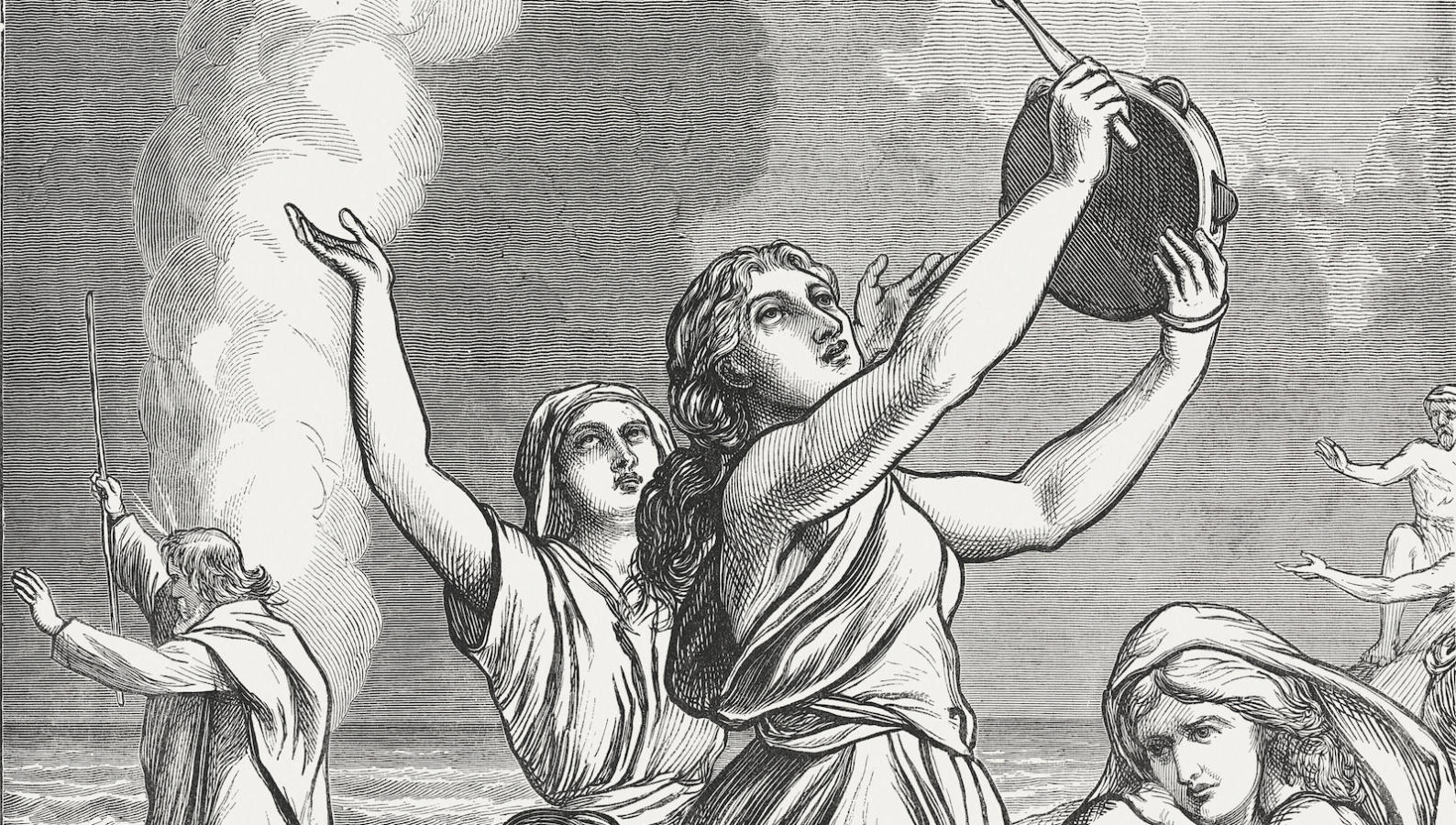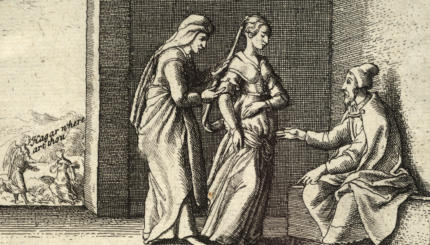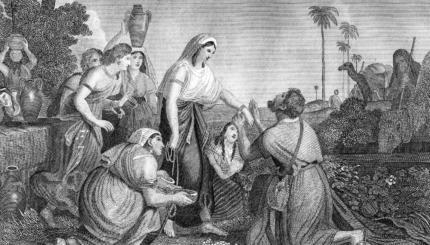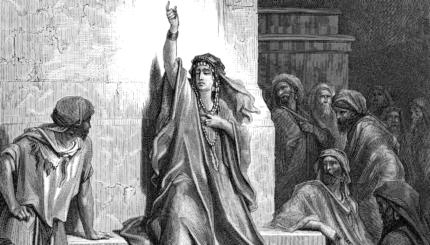Miriam, the daughter of Amram and Jochebed and the older sister of Aaron and Moses, is one of the few women that the Bible calls prophetess. Her mother gave birth to Moses after Pharaoh had given orders to kill every newborn Israelite boy. Jochebed hid the baby for three months; and when she could no longer hide him, she put the child in a basket and placed it among the reeds by the bank of the Nile.
Miriam stationed herself at a distance to see what would befall the baby. The daughter of Pharaoh came down to bathe in the Nile, saw the basket among the reeds, and sent a slave girl to fetch it. She opened the basket and saw inside a baby boy crying. The princess took pity on the baby and said, “This must be a Hebrew child (Exodus 2:6).”
Miriam approached and asked her if she could get her a Hebrew nurse to suckle the baby. The daughter of Pharaoh agreed, and Miriam went and brought Jochebed, who was hired on the spot by the princess to take care of the baby and to nurse him.
Years later, when the Israelites left Egypt and crossed the Red Sea, Miriam took a timbrel in her hand and led the women in a triumphal procession, singing and dancing.

Help us keep Jewish knowledge accessible to millions of people around the world.
Your donation to My Jewish Learning fuels endless journeys of Jewish discovery. With your help, My Jewish Learning can continue to provide nonstop opportunities for learning, connection and growth.
Later, when the Israelites were camping in Hazeroth, Miriam and Aaron made known their displeasure with the Ethiopian woman whom Moses had married. They also expressed their dissatisfaction with Moses himself, saying that God did not speak only through Moses, but also through them. Moses, a very humble and long-suffering man, did not react to their criticisms, but God called the three siblings to the Tabernacle.
The Lord came down in a pillar of cloud, stopped at the entrance of the Tabernacle, and ordered Aaron and Miriam to come out. God told them (Numbers 12:6–8): “Hear these My words: When a prophet of the Lord arises among you, I make Myself known to him in a vision, I speak with him in a dream. Not so with My servant Moses; he is trusted throughout My household. With him I speak mouth to mouth, plainly and not in riddles, and he beholds the likeness of the Lord. How then did you not shrink from speaking against My servant Moses!”
Angry with them, the Lord departed. Miriam became a leper, white as snow, the moment that the cloud rose from the Tabernacle. Aaron looked at her and, turning to Moses, asked for forgiveness, and begged him to restore Miriam’s health.
Moses prayed to God to heal Miriam, and God answered that Miriam should be kept out of the camp for seven days and then should be allowed back. Miriam was shut out of the camp for seven days. The people waited and did not renew their march until Miriam was readmitted. She died sometime later in Kadesh and was buried there.
Reprinted with permission from Who’s Who in the Hebrew Bible (The Jewish Publication Society).
Moshe
Pronounced: moe-SHEH, Origin: Hebrew, Moses, whom God chooses to lead the Jews out of Egypt.



